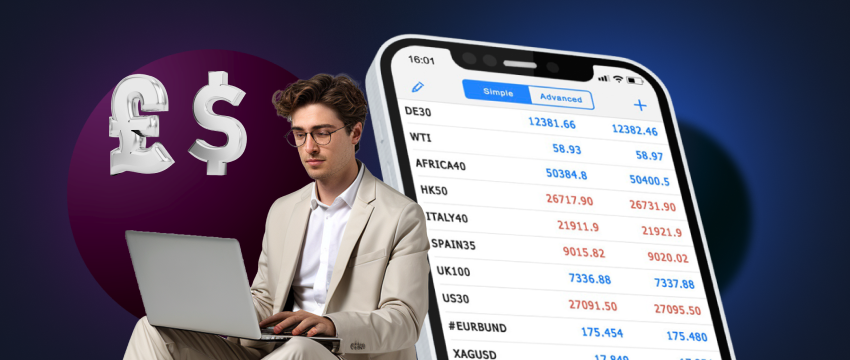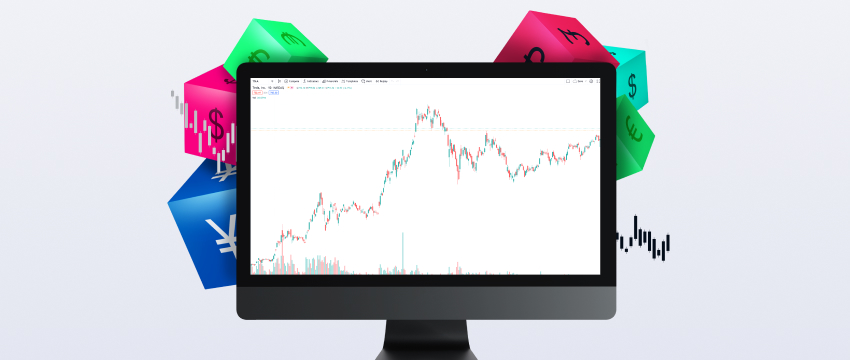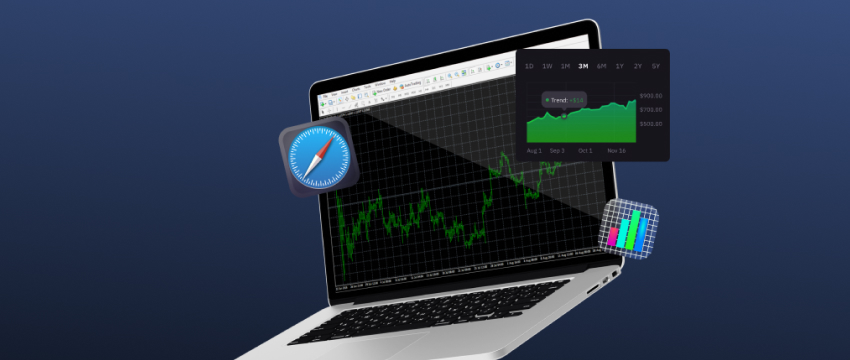The foreign exchange market expanded significantly following the United States’ withdrawal of the Bretton Woods agreement, ending the USD’s gold convertibility in the 1970s, and paving the way for the rise of the modern forex broker and trading industry. The end of the Bretton Woods agreement also helped CFD broker expand, offering more trading options.
Due to high transaction costs and accessibility issues, the market was initially only accessible by institutional players.
However, with the development of the Internet and online trading, everything changed. Today, retail traders can participate in the world’s largest financial market, foreign exchange, thanks to forex brokers.
Consequently, a forex broker acts as a go-between for traders and the market, offering market quotes through its liquidity providers and the best available conditions on its trading platform. It charges a fee or commission for this.
If you trade in the foreign exchange market, forex brokers will likely flood you with advertisements on any financial news website. However, you must not blindly trust eye-catching ads and extravagant claims.
Selecting the ideal forex broker for your trading requirements is a difficult and significant decision. This article examines five factors to help you choose the best broker for you.
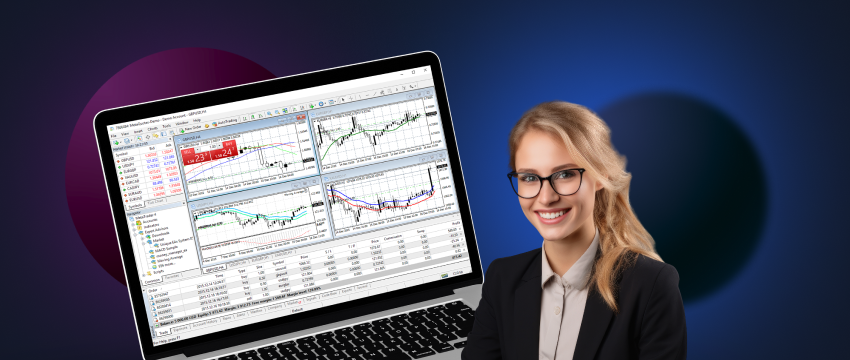
Top 6 steps to choosing a forex broker
Step 1: Account features
Every forex broker offers a different range of accounts and account features. Leverage and margin, commissions and spreads, initial deposit requirements, and ease of deposits and withdrawals are some of the top factors to consider when comparing features among brokers.
Spreads & commissions
The spread is the difference between the asking price (sell) and the bid price (buy). Brokers frequently offer “low spreads” as the lower the spread, the better this is for the trader.
For instance, a trader could purchase the EUR/USD pair at 1.1611 and sell it at 1.1610 if its price is 1.1610/11. The trader’s cost of the transaction is the difference (1 pip). Don’t forget that spreads are the main source of revenue for most brokers.
Another factor to take into account is the commission. Numerous brokers provide a variety of account types with varying fee structures to accommodate various trading styles.
For instance, one account might offer lower spreads but charge a separate commission, while another account might have slightly higher spreads but no commission on trades.
The purpose of that structure is to allow the trader to select the account type that will be most cost-effective and suitable for their trading strategy.
For traders who open and maintain currency positions overnight, swaps are another factor to consider. The fees for these trades, also known as the swap rate, vary depending on the currency pair and whether the trade is long or short. These fees can be either positive or negative.
Margin & leverage
Forex traders may have access to leverage through margin accounts, depending on the CFD broker. For instance, a trader with a $1,000 account size can hold a position worth up to $50,000 when employing 50:1 leverage.
A trader enjoys trading with leverage in winning positions because it significantly increases the potential for profits.
However, because leverage also magnifies potential losses, it can quickly destroy a trader’s account. Therefore, you need to be careful when using leverage.
Deposits
The majority of forex accounts can be funded with as little as $50 or $100 as an initial deposit.
Naturally, the buying power of leverage is much higher than the minimum deposit. As a result, this is one of the factors that makes forex trading appealing. In particular, it attracts novice traders and investors.
Numerous CFD brokers offer standard, mini, and micro accounts with different initial deposit requirements.
Deposits & withdrawals
Every forex broker has different rules regarding account funding and withdrawals. Account holders may be permitted by brokers to fund their accounts online using a credit card, wire transfer and more. Usually, withdrawals are made by wire transfer or check. For either service, the CFD broker might charge a fee.
Steps 2: Markets & Currency pairs
Even though there are many different currencies that can be traded, only a select few receive the most attention. Consequently, these currencies have the highest liquidity.
The two other important pairs are USD/CHF and USD/JPY, in addition to the previously mentioned EUR/USD and GBP/USD pairs.
Even though a broker may have a vast array of forex pairs, it is crucial that they offer the pairs that you, as a trader, are interested in.
Although currency trading may be a trader’s primary focus, it’s helpful to know that there are other options.
For instance, traders may want to profit from a trading opportunity they see in the stock market or oil. It would be frustrating if they were unable to do so. This could happen if the broker did not offer access to that product.
Seek out a broker who provides access to commodities, indices, shares, futures and metals in addition to currencies.
Step 3: Forex brokers and trading platforms
Traders can access the markets through the trading platform. Because of this, traders should ensure that a CFD broker’s software and platform have the technical en fundamental analysis tools they require and that it is easy to enter and exit trades.
A well-designed trading platform will have buttons for buying and selling that are easy to see. Some will even have a “panic” button that locks down all open positions. On the other hand, a badly designed interface may result in expensive order entry errors.
A lot of brokers provide their customers with access to the MetaTrader 4 (MT4) trading platform, which they then enhance with other trading resources and tools.
Customisation options, order entry formats, automated trading choices, strategy builders, backtesting capabilities, and trading alerts are additional factors to take into account.
Before opening and funding an account, traders can test out the trading platform with free demo accounts offered by the majority of brokers.

Step 4: Trading hours
The forex industry never sleeps. Individuals, businesses, and banks transact trillions of dollars’ worth of foreign exchange every day, making it the largest and most liquid market on the planet.
London, New York, Tokyo, and Sydney are the main forex hubs, but thousands of different currencies are exchanged there from nations with entirely different time zones. Because of all of this, forex is a global, round-the-clock market.
Selecting a forex broker that can provide you with the most trading hours is therefore essential. For instance, a UK-based trader who trades the USD/AUD currency pair will be aware that Australia’s trading day starts at 9 p.m., while New York’s trading hours start at 12 p.m. UK time.
Step 5: Educational resources
It’s also helpful to find an online broker that provides a wealth of forex educational and learning resources.
In other words, the more you understand about foreign exchange trading, the more likely you are to be successful in your trading.
Step 6: Forex Broker Customer Support
Customer service from a CFD broker should be accessible at all times as forex trading takes place five days a week. Issues such as platform outages, pricing errors, inaccurate account statements, or some other technical problems can arise.
As with any service, things can go wrong. As a trader you want the broker to be accessible, take responsibility, and act promptly and fairly to address concerns.
Verifying whether the broker provides support in your language is also worthwhile.
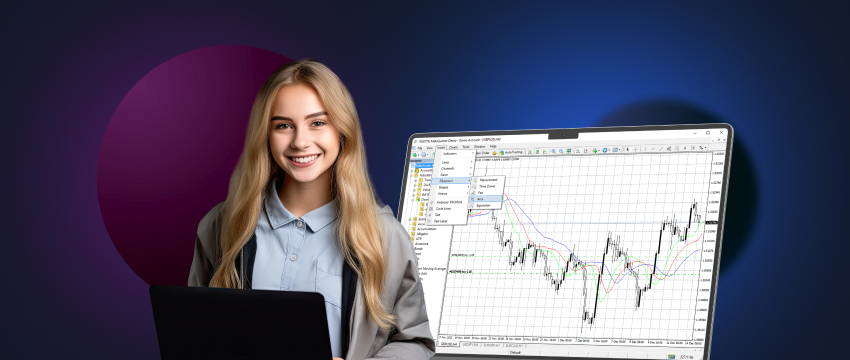
Final thoughts about forex broker
Analysing and creating forex strategies will take up more of your time and attention if you have trust in your forex broker.
A trader’s chances of success in the competitive forex market can be improved by doing some research before choosing a CFD broker.
Your trading style and your desired outcomes will determine which forex broker is best for you.
Regardless of these, the ideal forex broker for you will offer:
- Accessible market hours
- A platform that suits your needs
- Transparent pricing with no additional costs
In the end, the only way to determine which forex brokerage is best for you is to test out different platforms and see which ones suit your particular FX approach.
Disclaimer: This material is for general informational and educational purposes only and should not be considered investment advice or an investment recommendation. T4Trade is not responsible for any data provided by third parties referenced or hyperlinked in this communication.
